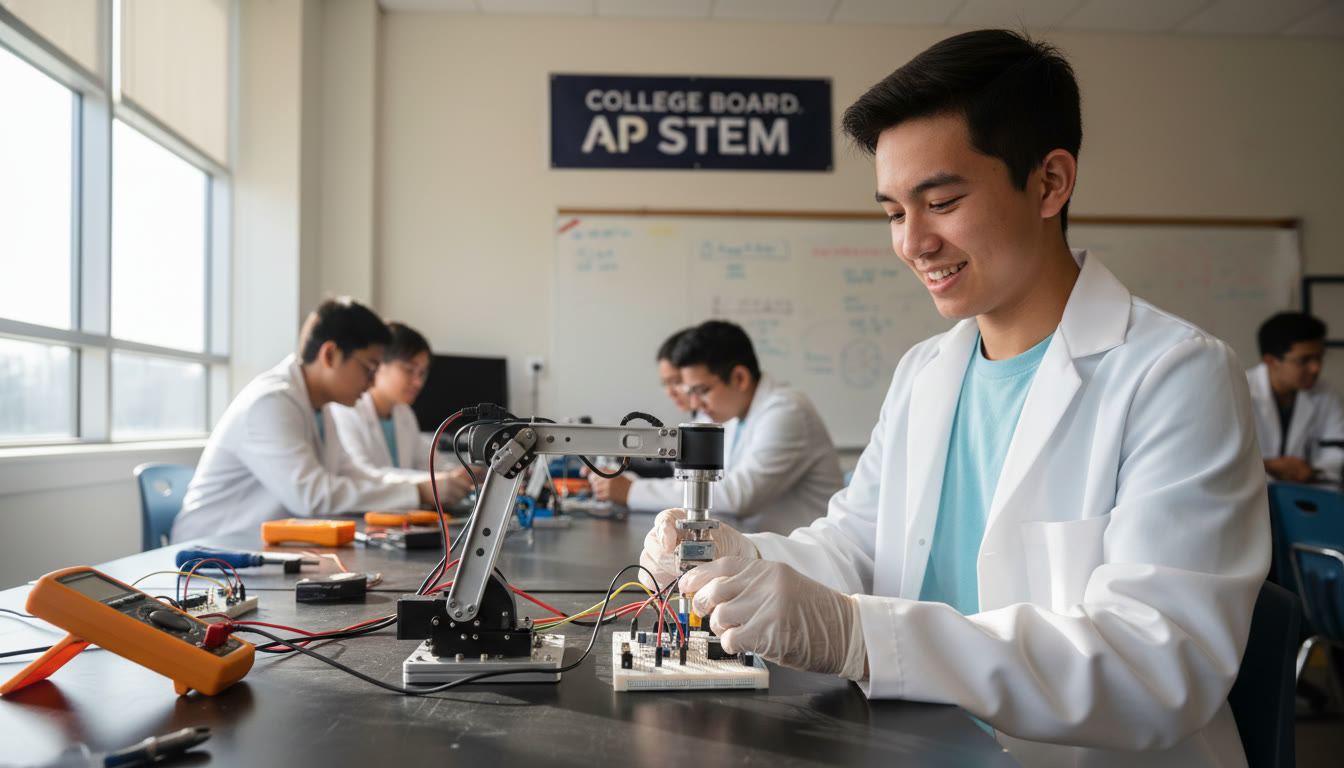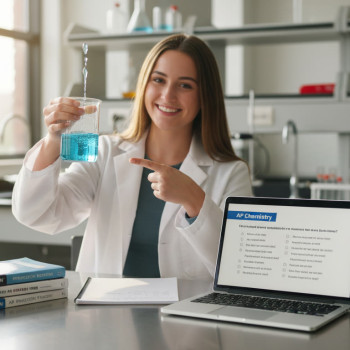Why Tennessee Students Should Care About AP — Especially If You’re Eyeing Tickle Engineering
If you or your child dream of designing bridges, writing code that runs robots, or building the next generation of sustainable systems, you’re probably looking at engineering schools and wondering how to best prepare. In Tennessee, the Tickle College of Engineering (University of Tennessee) is a name that comes up a lot — rigorous programs, hands-on opportunities, and a strong connection to regional industry. AP courses and exams are one of the most powerful tools you have in high school to show readiness, accelerate your degree, and open doors to research, internships, and advanced classes.
This guide is written for students and parents who want practical, human advice — not a checklist of jargon. Read on for clear strategies on choosing AP courses, turning exam scores into credit or placement, building a standout application, and using personalized tutoring (including Sparkl’s 1-on-1 guidance) to stay focused and confident.
AP: More Than Just Scores — Why It Matters
AP courses do three important things for aspiring engineers:
- They build authentic college-level skills in math, science, and problem solving.
- They can earn you college credit or let you skip introductory classes, freeing up time for major-specific electives, research, or internships.
- They demonstrate to admissions committees that you sought academic rigor and succeeded.
For Tickle-bound students, the AP advantage is especially relevant in Calculus, Physics, and Chemistry — the backbone of engineering fundamentals. But don’t forget AP Computer Science, AP Statistics, and AP English — communication and data literacy are increasingly essential for engineers.

Which AP Courses Give You the Best Head Start for Engineering?
Not all AP classes are created equal for engineering majors. Focus on courses that give you both conceptual depth and credits that engineering departments commonly accept.
Core AP Classes for Future Engineers
- AP Calculus AB and BC — Calculus is non-negotiable. BC covers more material (equivalent to first-year college calculus sequence) and often translates into more credits or higher placement.
- AP Physics C: Mechanics and Electricity & Magnetism — These two courses are calculus-based and mirror the physics you’ll see in engineering. Strong scores here signal readiness for rigorous engineering coursework.
- AP Chemistry — Important for chemical, materials, and biomedical engineering applicants. It demonstrates lab foundations and chemical reasoning.
- AP Computer Science A — Programming skills are ubiquitous in engineering. Knowing Java (or other languages) is a plus for software-focused tracks and general problem-solving.
- AP Statistics — Data is everywhere; engineers who understand probability and statistics are better positioned for research, quality control, and data-driven design work.
Secondary Picks That Make You Stand Out
- AP Environmental Science — Great for students interested in sustainability, civil, or environmental engineering.
- AP Computer Science Principles — Good for early exposure to computing concepts if you can’t yet take AP CS A.
- AP English and AP Seminar/Research — Strong communication and project-management experience can set you apart in applications and interviews.
How AP Scores Translate to College Credit and Placement
Every college decides its own AP credit policies, and departments often set score thresholds for specific courses. Generally, a 4 or 5 on Calculus BC or Physics C is highly valued; many institutions accept a 3 as well for some courses. The practical implication: check the AP credit policy at the school you want to attend (or a school representative’s page) to map which scores earn credit and which scores give placement.
Smart Steps to Convert AP Scores into the Most Value
- Before senior year ends, search your intended college’s AP credit and placement policies so you know targets for each exam.
- Plan courses with the goal of freeing up strategic space in your college schedule — think research, minors, or internships you actually want to do.
- Use the AP score-sending process carefully: you typically get one free score send each year, and you can order additional score reports if needed.
Mapping AP Strategy to Tickle College of Engineering Goals
Advising for a specific engineering school means two simultaneous efforts: maximize your AP course/exam portfolio, and build a compelling personal narrative for admissions. Tickle (and similar engineering schools) value demonstrated technical skills, curiosity, and resilience.
Freshman Year: Build Strong Foundations
- Take honors math and science if available; aim for AP Calculus AB or BC by sophomore/junior year.
- Try an introductory engineering program or robotics club — these show applied interest beyond classroom grades.
- Keep grades high in core subjects; APs don’t replace strong foundational work.
Junior Year: The Heavy Lifting
- Focus on AP Calculus, AP Physics (Mechanics), and AP Chemistry if possible.
- Start practice exams early — familiarity with exam style reduces test-day anxiety.
- Use summer to intern, research, or take community college courses that reinforce AP learning.
Senior Year: Polish, Test, and Send Scores
- Take AP exams for courses where you’ve shown consistent mastery and can score a 4 or 5.
- Send your official AP scores to the colleges you apply to — plan your free score send before the deadline and order additional reports if needed.
- Share meaningful projects (research posters, robotics builds, capstone design) in your application and interviews.
Practical Tools: Study Plans, Practice Tests, and Tutoring
Studying for AP exams is not about cramming — it’s about structured practice and feedback. A thoughtful study plan balances content review, targeted practice, and timed, full-length tests.
Weekly Study Rhythm (Example)
- 3 focused concept sessions (50–90 minutes) — one math-based, one lab or conceptual physics/chemistry, one problem-solving or coding.
- 1 full practice section under timed conditions (rotate between multiple-choice and free-response).
- 1 review session to analyze mistakes and create a short “error” log to revisit weekly.
How Personalized Tutoring Helps (When It Fits)
There’s a difference between knowing facts and being able to apply them under pressure. Personalized tutoring — for example, Sparkl’s 1-on-1 guidance — can help students close that gap because it offers tailored study plans, expert tutors who know exam patterns, and AI-driven insights that point to which topics need the most attention. For many families, a few months of focused tutoring during junior year yields higher confidence and, often, better scores.
Building an Application That Speaks Engineering
Top engineering programs want students who can do the math and also show curiosity, teamwork, and the ability to tackle messy problems. AP coursework shows academic rigor; your extracurriculars show how you use that rigor.
Application Ingredients That Matter
- Strong AP coursework in relevant subjects with solid exam scores.
- Project-based experiences — science fairs, robotics competitions, maker-space projects, open-source code contributions, or internships at engineering firms.
- Letters of recommendation that speak to your problem-solving skills and work ethic.
- Personal essays that narrate a meaningful engineering-related challenge you engaged with and what you learned.
Real-World Example: From AP Scores to Research Opportunity
Imagine Jenna, a Tennessee high schooler: she took AP Calculus BC, AP Physics C, and AP Chemistry, scoring 5, 4, and 4 respectively. With Calculus BC credit she began college having satisfied first-semester calculus requirements, which opened a slot for an early research seminar. That seminar led to a summer internship with a local firm, which later influenced her senior design project and ultimately helped her land a competitive engineering internship. AP courses didn’t replace Jenna’s curiosity — but they gave her the runway to pursue it earlier.
Understanding the Logistics: Scores, Deadlines, and Policies
Here’s what every student should track to make the AP-to-college transition smooth:
- AP exam dates and the school’s free score send deadlines.
- Your target colleges’ AP credit and placement policies for each exam.
- How many credits you need for graduation in the engineering major and what core classes can be skipped with AP credit.
| AP Exam | Typical Credit/Placement (Common Expectation) | Why It Matters for Engineering |
|---|---|---|
| Calculus AB | 4 college credits; placement into Calculus II in some schools | Frees first-semester calculus requirement; essential for progression. |
| Calculus BC | 8 college credits; often both Calc I and II waived | Opens space for advanced electives and early major courses. |
| Physics C: Mechanics | 3–4 credits or placement into introductory engineering physics | Directly aligns with mechanics courses in most engineering curricula. |
| Physics C: E&M | 3–4 credits; advanced placement possible | Important for electrical, mechanical, and materials engineering tracks. |
| Chemistry | 3–4 credits; lab experience may still be required | Valuable for chemical and biomedical engineering and materials science. |
| Computer Science A | 3–4 credits or placement into intro programming | Boosts ability to take software-heavy engineering courses sooner. |
Study Techniques That Stick — Not Just Rote Memorization
Engineers need to problem solve, not recite. Here are evidence-backed study techniques tailored for AP and engineering success:
- Active Practice — Solve problems before reviewing solutions; struggle stimulates learning.
- Spaced Repetition — Return to tough topics at increasing intervals to build durable memory.
- Mixed Practice — Don’t study topics in isolation; mix problem types so you can recognize which method applies.
- Explain Out Loud — Teaching a concept to a friend, parent, or tutor reveals gaps in understanding.
When to Get Extra Help
Get tutoring when:
- You consistently miss the same concepts on practice tests.
- You need a structured plan and accountability to avoid procrastination.
- You want tailored strategies for the free-response sections and time management under exam conditions.
Personalized tutoring, such as Sparkl’s targeted sessions, can be especially effective because it adapts to your pace, focuses on weak spots, and models exam-style thinking instead of rote content delivery.
Balancing Life, APs, and Mental Health
Students aiming for engineering and top colleges are often juggling heavy course loads, extracurriculars, and college prep. That pressure can be productive — or it can become burnout. The difference is rhythm and support.
Healthy Habits for High Performance
- Maintain consistent sleep (even during exam weeks) — cognitive performance drops fast with sleep deprivation.
- Build in short breaks during study sessions to maintain focus and prevent mental fatigue.
- Prioritize one or two meaningful extracurriculars rather than spreading yourself thin across many.
- Talk to counselors, teachers, or tutors when you feel overwhelmed — asking for help is strategic, not weak.
Putting It All Together: A Sample Two-Year AP Roadmap for Aspiring Engineers in Tennessee
Below is a sample plan for juniors and seniors who want to optimize AP impact while keeping a balanced profile.
| Year | Academic Focus | Extracurricular Focus | Goal |
|---|---|---|---|
| Junior Year | AP Calculus AB or BC; AP Physics 1 or AP Physics C (depending on calculus access); AP Chemistry or AP Computer Science A | Join robotics club, start an engineering project, pursue part-time research | Build core knowledge, take practice APs, develop project portfolio |
| Summer Between Jr/Sr | Review weak areas, take prep course or tutoring for AP exams | Internship, summer research, or community project | Gain experience that complements AP learning and strengthens application |
| Senior Year | Take remaining APs (Calculus BC if not yet taken, Physics C, AP Chemistry, AP CS A) | Lead a project, refine college list, finalize essays and recommendations | Achieve target AP scores, send scores strategically, apply with strong portfolio |

Final Thoughts: Keep Curiosity at the Center
AP courses and exams are powerful, but they’re a means to an end: becoming an engineer who can solve real problems. Keep curiosity at the heart of everything — pursue projects that excite you, ask deep questions in class, and look for ways to turn classroom lessons into real-world applications. If your path leads to Tickle College of Engineering, your AP experience can give you head start and more flexibility in college.
When it comes to preparation, a balanced approach wins: rigorous coursework, strategic test preparation, meaningful extracurriculars, and targeted support when you need it. A tutor or program that offers 1-on-1 guidance, tailored study plans, and actionable feedback (as some personalized tutoring services like Sparkl provide) can be the nudge that turns potential into scores and opportunities.
Next Steps for Students and Parents
- Make a scoreboard: list the AP exams you can realistically take and target scores for each based on your college goals.
- Map college AP policies for credit and placement to see how each score translates into real benefits.
- Create a study calendar with mixed practice, full-length timed tests, and dedicated review weeks.
- Consider targeted tutoring for areas where practice alone hasn’t closed the gap.
APs won’t define your entire engineering future, but they can change its trajectory. Thoughtful planning, consistent practice, and curiosity will carry you further than any single exam. If you’re in Tennessee and dreaming of Tickle — keep building, keep asking why, and let APs be the springboard that launches the work you love.
Good luck — and remember: the best engineers are the ones who keep learning long after graduation. Start that habit now.

















No Comments
Leave a comment Cancel